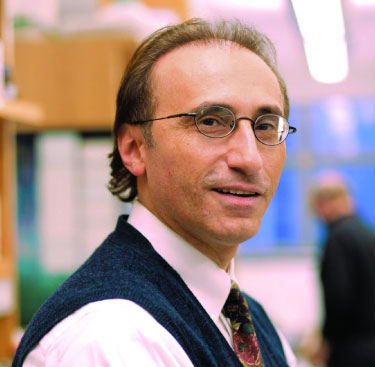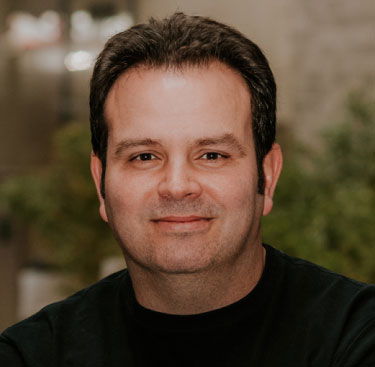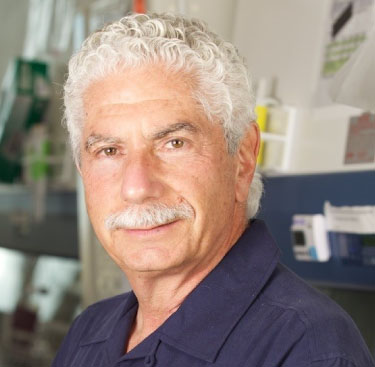
Shahin Rafii, M.D.
Scientific Founder
Dr. Rafii is the Arthur B. Belfer Professor of Genetic Medicine at Weill Cornell Medicine. Dr. Rafii, a board certified hematologist-oncologist, is engaged in basic and translational research as well as patient care. He is the director of the Ansary Stem Cell Institute at Weill Cornell and is a Howard Hughes investigator.
Dr. Rafii was the first to develop the innovative E4-ORF1 technology to generate abundant stable and functional endothelial cells. He received his M.D. degree from Albert Einstein College of Medicine and completed his internship and residency in Internal Medicine followed by a fellowship in Hematology-Oncology at Weill Cornell.
He carried out his post-doctoral training in vascular and hematopoietic stem cell biology under the supervision of Dr. Ralph Nachman and Malcolm Moore at Weill Cornell. He is the principal inventor in numerous patents on therapeutic uses of vascular cells for stem cell self-renewal and organ regeneration as well as tumor targeting.

Jason M. Butler, Ph.D.
Dr. Butler is the Director of Stem Cell Therapeutics and Professor of Medical Sciences at the Center for Discovery and Innovation at Hackensack Meridian Health, as well as an Associate Professor at Georgetown University. Dr. Butler obtained his B.S. in Zoology from the University of Florida in 2001 and continued his graduate education at UF where he completed his Ph.D. in stem cell biology in 2005. Dr. Butler completed his postdoctoral fellowship with Dr. Shahin Rafii
in stem cell and vascular biology at Weill Cornell Medical College in 2011.
Dr. Butler’s laboratory is dedicated to understanding the role of bone marrow endothelial cells (BMECs) in establishing unique instructive vascular niche cells that produce the correct milieu and stoichiometry of growth factors to support hematopoiesis during physiological aging and hematopoietic regeneration following hematopoietic insults, such as chemotherapy and inflammation. Research from Dr. Butler’s laboratory has shown that BMECs are indispensable for supporting hematopoietic stem cell (HSC) self-renewal and differentiation into lineage-committed progeny. Notably, they have recently demonstrated that aged BMECs can instruct young HSCs to function as aged HSCs, whereas young BMECs can rejuvenate aged HSCs. Building upon these findings, the Butler laboratory has identified the critical signaling pathways altered within the aged endothelial niche that impair their instructive capacity to support HSCs and hematopoiesis. They have also demonstrated that as little as one dose of sublethal
chemotherapy leads to significant damage to the BM vascular niche and that regeneration of the vascular system is crucial for the recovery of the hematopoietic compartment. Dr. Butler has published data demonstrating that infusion of BMECs can restore and protect an aged BM microenvironment and improve the functional output of aged HSCs, as well as provide widespread vascular protection, following myelosuppressive injury. Indeed, these foundational pre-clinical studies led to Angiocrine Bioscience’s Phase 1b/2 clinical trial wherein endothelium are being infused during HSC transplants to accelerate regeneration of vascular niches following myeloablation.
The overarching goal of Dr. Butler’s research program is to gain fundamental insights into how aging interferes with proper blood vessel function within the bone marrow microenvironment, which in turn impairs the vascular system’s ability to function as a supportive niche that regulates hematopoiesis. Dr. Butler’s laboratory is aiming to deconstruct the mechanisms guiding the interactions between the blood stem cell and the bone marrow vascular niche to reveal key molecular and cellular mechanisms that negatively impact the hematopoietic and cardiovascular systems. The Butler laboratory is currently developing protocols to modulate novel anti-aging targets for therapeutic rejuvenation of hematopoietic and vascular systems to enhance longevity and health-span.

David Cheresh, Ph.D.
Dr. Cheresh is Distinguished Professor and Vice Chair of Pathology at the Moores Cancer Center in the University of California, San Diego. He is also Director for Translational Research at the Moores UCSD Cancer Center. Prior to relocating his laboratory in 2005, Dr. Cheresh was a professor in the Departments of Immunology and Vascular Biology at The Scripps Research Institute, focusing on the role of adhesion receptors and growth factors in the angiogenesis of tumors. Dr. Cheresh received his doctorate in Immunology from the University of Miami in Florida. In 1982, he joined The Scripps Research Institute as a postdoctoral fellow in the Department of Immunology and moved up through the ranks where he became Professor in 1996. Dr. Cheresh is the recipient of various awards including the 15th Hans Linder Memorial Lecture from the Weizmann Institute of Science in Rehovot, Israel, the XXIII Annual Myron Karon Memorial Lectureship from the University of Southern California, the Robert Flynn Professorship Award from Tufts University School of Medicine, the Judah Folkman lectureship, the Paget-Ewing award from the Metastasis Research Society/AACR and was a recipient of The American Cancer Society Faculty Research Award and a Merit Award from the National Cancer Institute.
Dr. Cheresh studies the mechanism of action of signaling networks that regulate angiogenesis, tumor growth, stemness, drug resistance and metastasis. He discovered that integrin ανβ3 is a functional marker of angiogenic blood vessels. His work is both basic and translational focusing on new strategies for biologically-based drug development including the development of several drugs now in various stages of clinical development. Dr. Cheresh’s research has been widely cited with seven of his peer-reviewed publications being cited over 1,000 times. Dr. Cheresh was the scientific founder of TargeGen, a San Diego based biotechnology company, which developed a number of small molecules based in part on discoveries made in the Cheresh laboratory. TargeGen’s JAK2 inhibitor has shown clinical activity in patients with myeloproliferative disease and has met its primary endpoint in a Phase III registration trial. Most recently, Dr. Cheresh and his colleagues have developed a novel scaffold-based chemistry approach to stabilize kinases in their inactive state. These studies have lead to the discovery of a first in class RAF inhibitor that has distinct advantages relative to ATP mimetics of RAF.
